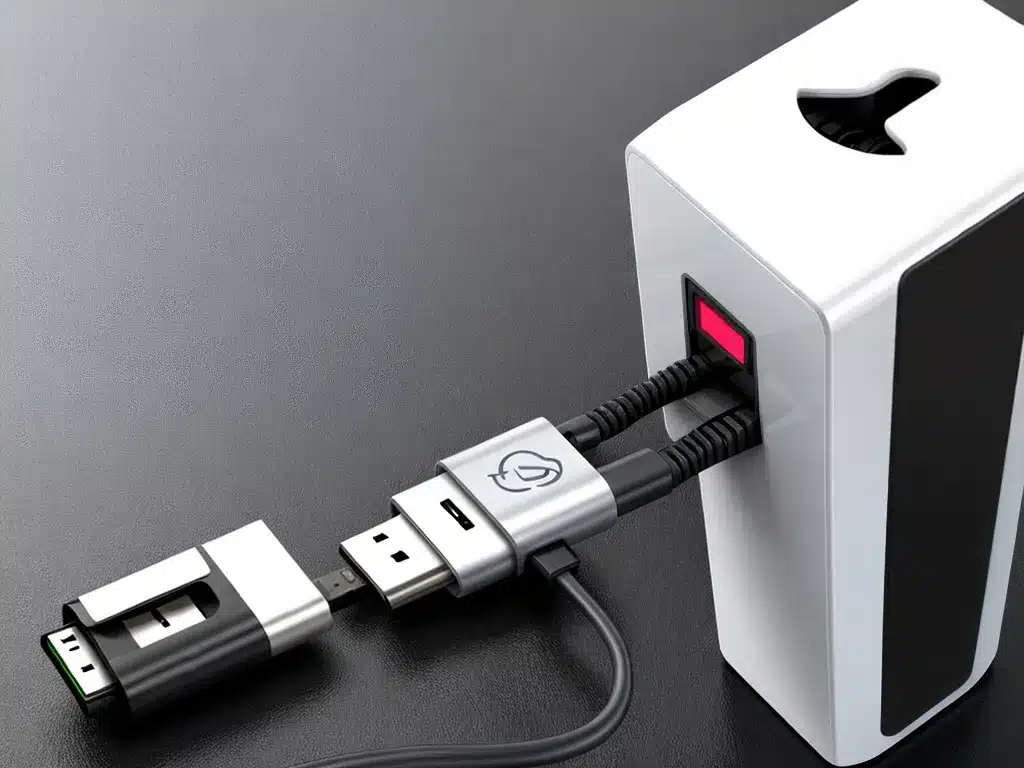USB Drive Dangers: Assessing the Risk of Public Charging Stations
Using public USB charging stations comes with potential risks that users should be aware of. As convenient as these charging stations may seem, they can potentially give hackers access to your phone or allow malware to infect your device. In this article, we will explore the dangers of public USB charging in depth so you can make informed decisions about whether and how to use these stations.
How Public USB Charging Stations Work
Public USB charging stations, often found in airports, malls, and other public places, allow you to connect your USB cable to charge your device. Some charge money while others are free. They work by providing a USB port that supplies power, allowing you to connect your phone, tablet, or other device to charge its battery.
The main risk with public USB charging stations is that the USB connection also provides a data connection that can be used by hackers to access your device. Unlike a wall outlet that only supplies power, a USB port allows data transfer.
Malware and Data Theft Risks
Malware – One major risk of using public USB charging stations is that your device could become infected with malware. Hackers can modify charging stations to install malware on connected devices. Once installed, this malware can do things like:
- Steal your personal data and passwords
- Access your accounts and sensitive information
- Activate your camera or microphone to spy on you
- Hold your device for ransom until you pay a fee
Data theft – Even without malware, a public USB station still poses a data theft risk. When you connect, data can be pulled from your phone over the USB connection, whether you have unlock your device or not. Sensitive info like contacts, photos, account info, and texts could be accessed.
Juice jacking – “Juice jacking” refers to hacking attacks specifically targeting public USB charging stations. Hackers load malware onto the charging station, so they can infect or access any device that gets plugged in for power. They target public places with free charging to find unsuspecting victims.
Safeguarding Yourself
Here are some tips to protect your data and avoid issues when using public USB charging stations:
-
Use AC power outlets – Many public places have regular power outlets available. Charging from an AC outlet doesn’t allow data transfer and is safer.
-
Carry a portable charger – Portable battery packs let you charge on the go without having to use public stations at all. Power banks allow you and only you to control when your device gets charged.
-
Use a data blocker – Special USB data blockers allow power to flow for charging but block any data connections. This lets you charge safely from USB without data theft risk.
-
Don’t unlock your device – Never unlock your device while connected to a public charging station. This gives hackers access if malware is present.
-
Only connect briefly – Charge your device just long enough to get the power you need, then disconnect. The longer connected, the more vulnerability.
-
Keep an eye on your device – Watch for suspicious activity in case someone tries to tamper with your device while charging in public.
-
Install security software – Make sure you have malware and antivirus software installed to scan for and remove any infections.
The Bottom Line
Public USB charging stations should generally be avoided when possible, unless you take proper precautions. Charging your device from public stations does come with risks of malware, data theft, juice jacking, and other cyber threats. Use trusted AC outlets, portable chargers, and data blockers whenever possible to avoid these risks when charging on the go. Stay vigilant about security and avoid plugging in any device with sensitive information to a public charging station.













